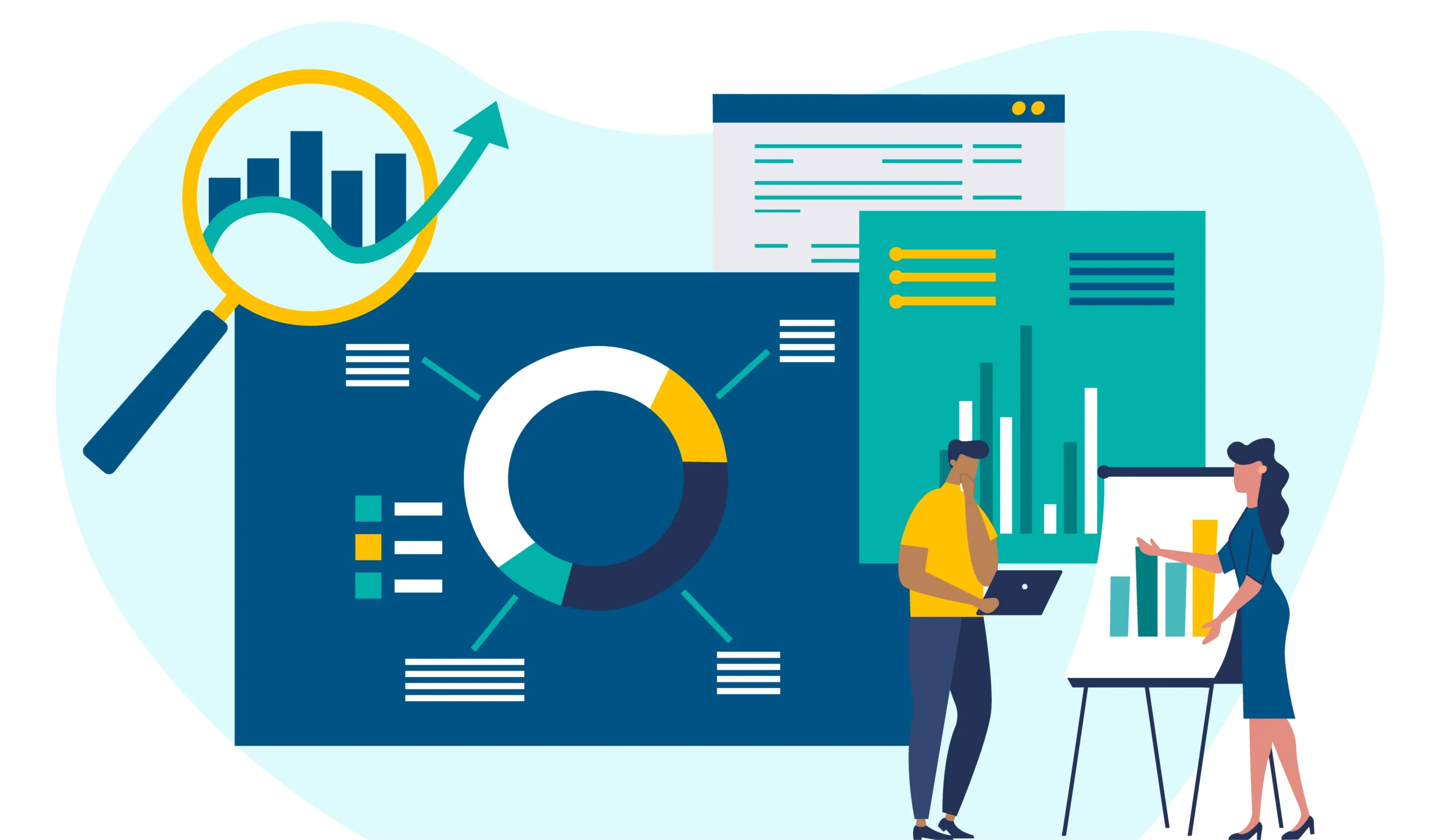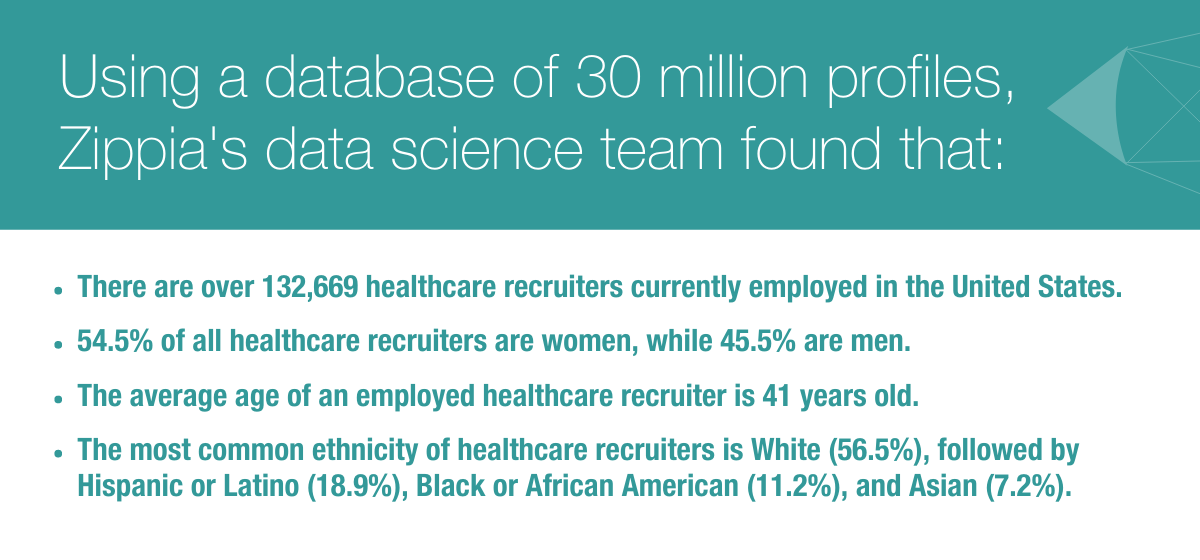Data-Driven Recruitment: The Future of Healthcare Hiring

By 2026, 14% of all U.S. jobs will be in the healthcare and social assistance industry, and the healthcare industry will add nearly 4.0 million jobs.
Healthcare providers strive to stay ahead of the industry’s transformation, and data-driven recruitment is emerging as a new and powerful tool. As hospitals increasingly require more skilled professionals at all levels, hiring employees with the right skills has become critical.
A notable advantage of data-driven recruitment is that it can help healthcare organizations eliminate barriers to job placement. By leveraging data from different sources, including applicant tracking systems, job boards, and social media, healthcare organizations can gain insights into their recruitment process by measuring each recruitment channel’s effectiveness.
This resourceful approach to employee acquisition could be a game-changer for many healthcare organizations’ human resources teams. Read on to discover why your healthcare hiring needs a data-driven recruitment approach.
Cost-Effective & More Accurate Analysis
According to Employ Inc.’s Quarterly Insights Report, the hiring rate continues at a near-record pace, 8% faster than pre-pandemic levels. As recruiting talent has become more challenging over the past year, employers across nearly every industry are looking for ways to adapt to an evolving hiring landscape.
Data-driven recruitment is the future of hiring due to its cost efficiency and how it utilizes technology for more accurate analysis. By incorporating a data-backed strategy, organizations can identify where their efforts are most effective to best source quality candidates. As such, recruiters must gain more profound data analysis skills to match the expectations of C-suites. This means utilizing tools such as Google Analytics, email automation tools, and Applicant Tracking Systems (ATS).
With these programs, recruiters can track their process from sourcing to onboarding while analyzing their efforts. The insights gathered allow recruiters to identify the most efficient sources of quality candidates and optimize the recruitment process accordingly.
Additionally, metrics such as the number of hires, acceptance rate, onboarding speed, costs per hire, and candidate quality can be easily measured and tracked to ensure objectives are met. In short, data-driven recruitment is an invaluable tool that empowers recruiters with knowledge and allows them to make smarter decisions throughout each step of the recruitment process.

Understand Your Candidates’ Expectations
The U.S. Bureau of Labor Statistics shows that overall employment in healthcare occupations is projected to grow 13% from 2021 to 2031, much faster than the average for all occupations. This increase will result in about 2 million new jobs over the decade.
Now, more than ever, employers must delve into what job seekers and potential candidates are looking for to address current expectations and not lose out on top talent to their competition. For example, compensation continues to be a driving factor for job seekers, with 69% of recruiters believing wages for new hires will continue to increase over the next year due to inflation. As a result, companies must ensure compensation is updated and reflects the current hiring market.
According to the Employ Quarterly Insights Report :
- 49% of recruiters expect salary increases to slow hiring due to budget constraints.
- 34% are concerned about layoffs arising from increased labor costs.
While some organizations can’t always win on compensation alone, focusing on other areas where the business can compete will help find alternatives to make the company attractive. A strong company culture is one alternative businesses can explore to attract and retain top talent.
Establishing a positive work environment where employees feel valued, supported, and engaged can be a game-changer for an organization’s overall success. Offering perks and benefits that align with employees’ values and priorities can also make a significant difference in attracting and retaining top talent. From flexible work arrangements to wellness programs, companies can create a tailored benefits package that resonates with their employees, ensuring they feel appreciated and motivated to stay with the organization long-term.
Why Healthcare Needs Data-Driven Recruitment
Recruitment has taken on a new level of complexity in today’s competitive healthcare industry. The demand for qualified healthcare professionals continues to rise with the ever-increasing population, and as a result, the recruitment process has become more arduous and expensive. Hiring managers are now challenged to source, screen, and select top talent on time and cost-effectively.
Recruitment analytics and data-driven technology can help healthcare organizations streamline their recruitment process, providing valuable insights into their current strategies and helping them make informed decisions on where to improve efforts for maximum results.
Data-driven recruitment offers several advantages to the healthcare industry. The most significant is its ability to identify the most qualified candidates for the job.
Additionally, AI technology and advanced analytics can be leveraged directly from applicant information to:
- Mine insights from applicants’ resumes.
- Define critical characteristics that outline success in a role.
- Provide detailed summaries of potential hires.
- Curating personalized interview questions.
This information can help to hire managers shift their focus and invest more time and resources in the recruitment channels that deliver the most suitable candidates.
Furthermore, data-driven recruitment enables HR personnel to employ a more personalized and targeted approach to Talent Acquisition by creating custom recruitment strategies based on a candidate’s skills, background, and interests. By utilizing data-driven recruitment strategies, the healthcare industry can build a strong foundation of qualified healthcare professionals to help address society’s ever-growing healthcare needs.
By leveraging big data and AI technology, healthcare providers can tap into vast pools of candidates, improve their screening process, source more qualified candidates faster than ever, and optimize the entire candidate experience.
As these advancements continue to shape the recruitment landscape, change is happening rapidly. Healthcare providers should stay vigilant and update their processes with the latest technologies to continue making progressive improvements in recruiting quality healthcare talent faster and easier.
Ultimately, embracing data-driven recruitment gives organizations a more remarkable ability to hire better talent by reducing manual effort while enabling a comprehensive hiring process that increases efficiency and reduces costs.
Are you looking to stay ahead of the competition and successfully hire the best talent for your open healthcare positions in 2023? Our guide: The Best Hiring Strategies for 2023, will provide you with the most up-to-date hiring strategies to set you up for success. Take advantage of this opportunity. Get ready to start finding the right talent today! Discover The Best Hiring Strategies for 2023.

